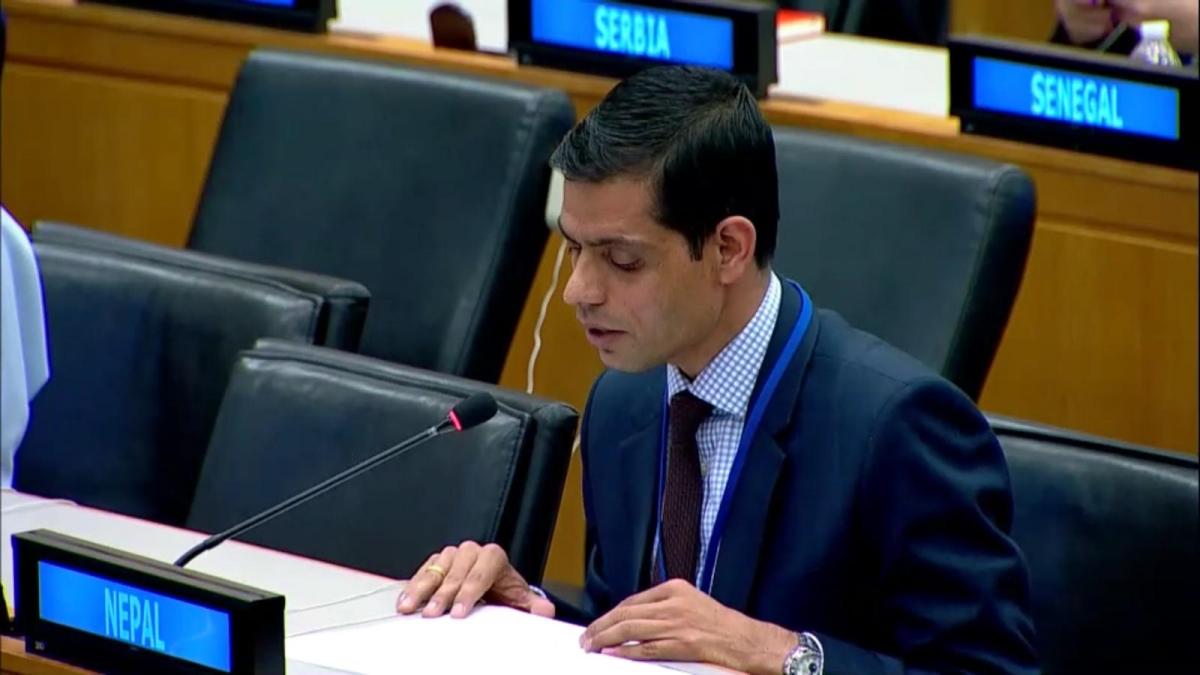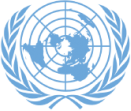
Mr. Chairman,
At the outset, I join the previous speakers in thanking the Secretary-General and his team for the comprehensive reports produced under this agenda item.
I align my statement with those delivered by the State of Palestine, Malawi and Paraguay on behalf of the Groups of 77 and China, LDCs and LLDCs respectively and I wish to highlight a few points in my national capacity.
The increasing trade tensions, surge in unilateralism, fluctuations in commodity markets, exchange rate volatility and the negative trends in net private capital flows to developing economies are putting strain in the development prospects of developing countries, with impacts in multiple sectors.
The impacts of such trends are even more pronounced for LDCs. As almost 80 percent of the LDCs are dependent on commodity exports, fluctuations in commodity markets impacts them directly. Similarly, the erosion of trust in rule-based multilateral trading system has detrimental impacts on their pursuit for revitalized access to external markets. Trade deficit of many of these countries is getting worse. As the share of LDCs in global exports is not gaining any momentum, realizing SDG target 17.11 seems more distant.
It is equally important that in order to ensure their graduation from the LDC status in a smooth and sustainable manner, LDC-specific trade concessions should be accorded to those countries which are in the process of graduation.
LDCs which are also landlocked or small-island face even more challenges. The geographical disadvantages along with the structural constraints have contributed to escalating the cost of development.
Mr. Chairman,
An early conclusion of the Doha Development Round of trade negotiations is in the interest of all WTO members, and this will positively contribute towards achieving sustainable development.
The international monetary and financial architecture is yet to be fully aligned with the 2030 Agenda, with sustainable development at its core. The current structure also needs to be made more inclusive by ensuring greater say and participation of the developing countries.
Similarly, there is a need for a holistic response to new trends associated with digital revolution. The opportunities associated with fin-tech must be harnessed, but avoiding the slippery slope of financial uncertainty is equally important as financial intermediaries in non-banking sector, including crypto-assets, are increasing.
With the increasing digitalization of finance, it is equally important to enhance financial and digital literacy. Financial inclusion at all levels is also of paramount importance.
The effective implementation of 2030 Agenda hinges on the availability of resources --public as well as private, domestic as well as external. In Nepal's case alone, about USD 18 Billion is the estimated annual amount in implementing the SDGs.
Furthermore, investment in critical areas including infrastructure, small and medium-sized enterprises, renewable energies and clean technologies is important for a strong edifice of economy. A short-term horizon of investment cannot propel the raft of sustainable development.
For countries like Nepal, remittance also has a sizable impact on the economy. But it must be acknowledged that remittances are typically earned wages transferred through informal channels to families, primarily to meet the basic needs of recipient households, and should not be therefore equated with other international financial flows.
ODA continues to remain a critical source of external financing, and development partners should fully comply with their ODA commitments, facilitate trade and export and also encourage the flow of investments and technologies, in line with Addis Ababa Action Agenda and the 2030 Agenda as well as IPOA and VPOA for LDCs and LLDCs respectively.
I conclude, Mr. Chairman, by stressing that multilateralism and inclusive international economic governance are critical for financial stability and sound macroeconomic health, which in turn are bedrocks for achieving sustainable development.
Thank You.


